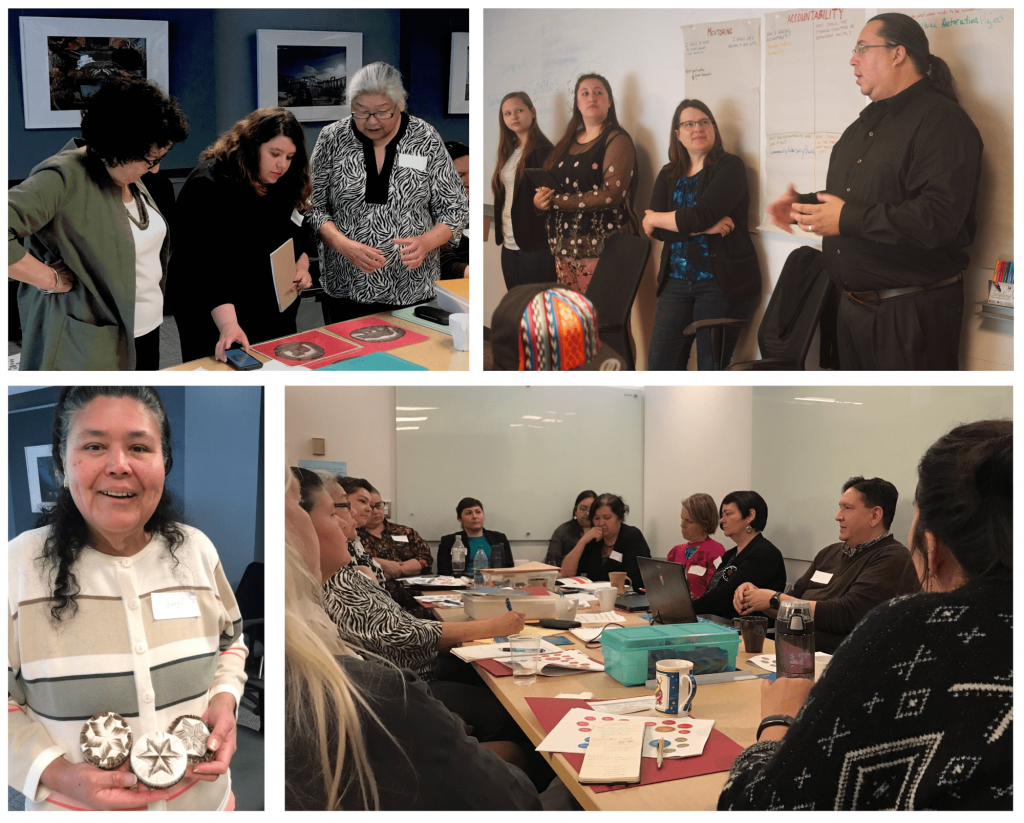Over the past year, many GRASAC members near and far have been working together to map out the current priorities and long-term aspirations for our research alliance — it’s been wonderful to listen to the over flow of inspiring ideas these collaborative planning sessions have generated!
This is the grounding for GRASAC’s latest funding bid, an application for a Partnership Grant (PG) from the Social Sciences & Humanities Research Council of Canada (SSHRC).

Our application is focused on the essential role of heritage items within Great Lakes cultural recovery and recuperation. It sets a five year path for teams to work together on four priority areas: restorative methods for research with collections; restorative practices for language arts; place-based knowledge practices; and continuous expressions of Indigenous sovereignties. The proposed plan also seeks to create five research hubs throughout the Great Lakes region.
Cara Krmpotich, who directs the Museum Studies Program at the University of Toronto and who has been heavily involved with GRASAC’s Partnership Development Grant (2016-19), has kindly agreed to take the lead on this new PG application. Initial plans and research foci were formulated at an extremely fruitful large planning meeting this past May in Toronto, and have been refined through smaller consultations with GRASAC’s Steering Committee, past and present leadership, research teams, and a second meeting for research leaders from the five proposed hubs. Chi miigwech and nia:wen to all of you who travelled to Toronto to participate in these meetings!

Our Letter of Intent was submitted to SSHRC on February 15, 2019, with the support of two First Nations, five universities and 27 GRASAC members.
“The funding we are pursuing is highly competitive, but designed to support research done in true partnership,” says Cara Krmpotich. “For that reason, it’s a great fit for GRASAC. We have this opportunity to think deeply about our Alliance as a partnership of people and heritage items within universities, cultural institutions and communities, who are from multiple Great Lakes nations, and who have relations with lands, waters, and beings.”
Earlier this spring, GRASAC successfully secured funding from the University of Toronto’s Community Partnership Research Program for a two-day workshop hosted by Rama First Nation. The workshop will continue to build GRASAC’s research program by asking participants to voice how “research outcomes and impact” can be understood from Great Lakes’ community perspectives. We have guests coming to inspire us with their work on social justice impact frameworks, the impact of working with traumatic records on archivists, and communicating the impact of digitized cultural heritage.
GRASAC anticipates hearing from SSHRC in June 2019 whether we will be invited to submit a full Stage Two Partnership Grant proposal in November 2019.
If GRASAC members have a research idea or need that aligns with one or more of our PG application’s priority areas, and that is best addressed through a collaborative research approach, please contact Cara to discuss further.
— Written by Kate Higginson, April 2019
